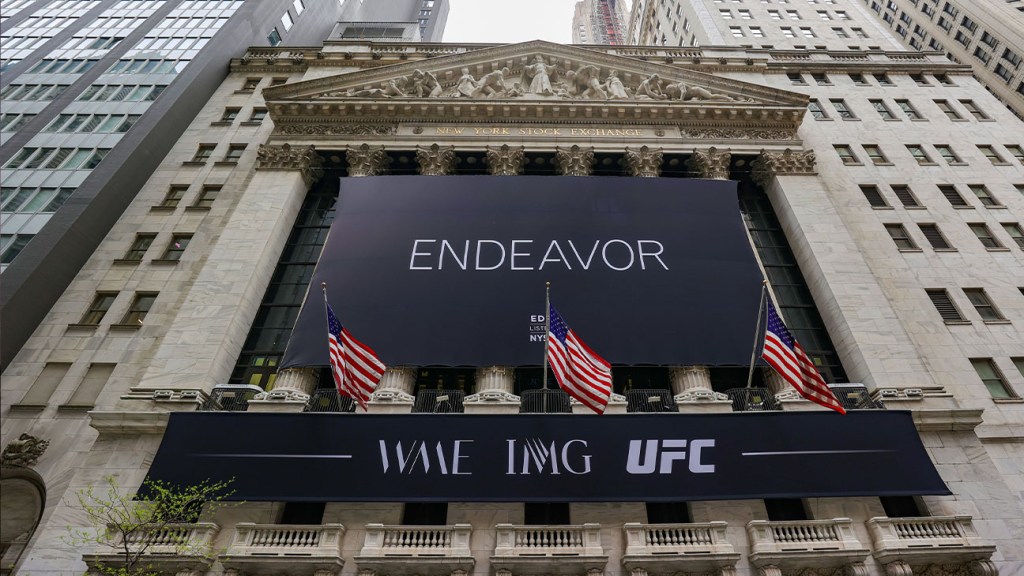Endeavor won’t have to face a lawsuit from a consultant, who accused the company of stealing marketing materials from him that allegedly salvaged its $10.3 billion initial public offering.
In a ruling, unsealed on Friday, Los Angeles Superior Court Judge Gregory Keosian found that David Carde didn’t have an implied contract with Endeavor when he sent an analysis of the firm’s business model that he said illustrated how its hodgepodge of unrelated acquisitions is actually good for business. He stressed the company’s policy warning against sending unsolicited submissions.
In 2019, Endeavor abruptly pulled its planned IPO amid skepticism from the market. Around this time, Carde sent chief executive Ari Emanuel a report through his lawyer touting Endeavor’s infrastructure of supposedly unconnected companies as driving network effects, which is the concept that the value of a product increases as more people use it. According to the suit, his ideas were used in marketing materials by several executives.
In a ruling granting summary judgment in favor of Endeavor, the court concluded that Carde didn’t create a contract with Endeavor when he sent his report, regardless of whether it was read. It pointed to the absence of evidence showing that he “clearly conditioned the submission of his analysis on an obligation to pay for its use” and that Endeavor “voluntarily accepted the submission of the analysis” understanding the terms.
On summary judgment, Carde stressed that it’s a “custom and practice that when ideas and intellectual property are submitted through representation” in the entertainment industry, “those materials may not be used by the recipient for free, but rather compensation will be required for any use.”
Judge Keosian was unconvinced, explaining that Carde failed to back up the assertion. He also said that suit fails to account for Endeavor’s policies against unsolicited materials, which state that it “does not accept submissions of any kind through the website” or otherwise.”
In his analysis, Carde argued that the company is “well-positioned to become a direct-to-consumer” behemoth and that it should use its “disparate” assets to monetize new fields of content, such as by using Dwayne Johnson to launch “en-route entertainment” for self-driving cars, education content for children or virtual reality tourism. He concluded with a “key point” that the company’s “infrastructure and optionality are the drivers of value and with the right decisions by management, this company is just at the beginning of how big and impactful it can be.”
The suit brought a claim for breach of an implied contract. The court last year advanced the case, siding with Carde on arguments that it’s standard industry practice to provide compensation for use of ideas submitted through a lawyer in Hollywood.
Endeavor didn’t immediately respond to a request for comment. It was represented by Jessica Stebbins Bina, Michele Johnson and Marvin Putnam of Latham & Watkins.
In a statement, Bina said, “We are pleased with the court’s decision granting summary judgment in favor of our client, Endeavor, holding plaintiff’s idea theft claims absolutely meritless. As the court recognized, Endeavor does not accept unsolicited submissions, and never entered any contract of any kind with plaintiff.”
